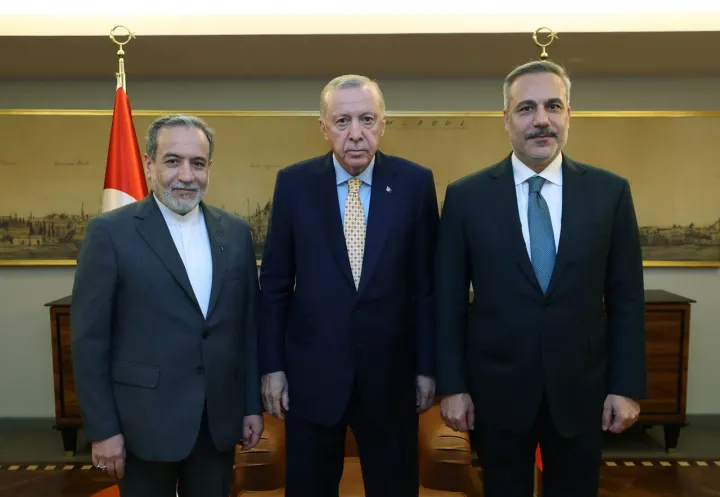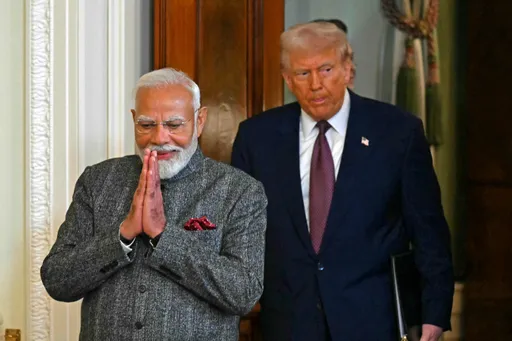By Mazhun Idris
In March 2023, a landmark parliamentary amendment to Ghana's Criminal and Other Offences Act of 1960 sought to decriminalise suicide, reviving the debate on how a legacy of colonial thinking delayed recognition of suicidal behaviour as something that requires understanding rather than punishment.
"Jailing people for attempted suicide is akin to punishment for having mental health problems, which is totally unfair,’’ says Prof Akwasi Osei, former head of Ghana's Mental Health Authority.
He says in the last 15 years, about 50 people were convicted and jailed between three months to five years for attempting to commit suicide.
According to Osei, data shows that 1,500-odd cases of suicide are reported annually across Ghana. "We have known all along that 95% or even more of suicidal behaviour are mental issues," Akwasi Osei told TRT Afrika.
The causes that drive people to the brink are severe mental distress, depression, extreme shame, poverty or financial difficulties, major health challenges, and problems associated with family or love.
In a study conducted prior to the law being amended, and published in the International Journal of Offender Therapy and Comparative Criminology, Mensah Adinkrah of Central Michigan University probed the extent of punishment faced by suicide survivors in Ghana following their criminal prosecution.
Counterproductive method
"The findings indicate that the majority of defendants pleaded guilty to, or were found guilty of the charge, and sentenced with penalties ranging from monetary fines to incarceration," the report says.
Prior to the amendment, Section 57(2) of the law treating suicide attempt as "a misdemeanour" was just the opposite of what was required, according to Vida Badu Oppong, regional clinical psychologist in the Ghana Health Service.
“Suicidal people are mentally distressed. So, criminalising suicide was counter-productive in our quest to mitigate the menace," she says.
"Attempted suicide, or the ambivalent expression of 'I want to die', is actually a cry for help, and a neurotic expression of feelings of desperation and helplessness," she told TRT Afrika.
The collateral impact of criminalisation of suicidal acts was ironic, in that it could encourage people with suicidal thoughts to use lethal methods that would ensure they did not fail in their attempt to die.
Help, not reproach
The psychologist says the law was also clearly oblivious to the medical condition or social circumstances of the people involved.
"The law also discouraged suicidal persons from reporting suicidal crisis early enough for help, and it led to under-reporting, which in turn prevented accurate estimations that could guide planning for suicide prevention," Vida points out.
Advocates of mental health emphasise that suicidal behaviour is a disorder. Instead of facing the danger of arrest, the suicide survivors should be given access to medical and psychological assistance.
Local and international mental health advocacy groups in Ghana, including mental health workers, psychologists, psychiatrists, and human rights non-profits, spent years calling for the decriminalisation of non-fatal suicidal behaviour or acts in Ghana.
Therefore, it was a huge victory in their battle when the Ghanaian parliament amended the law to treat individuals who attempt to take their own life as those needing support to overcome mental health challenges rather than legal victimisation.
Giant leap
Ghanaians, prominent among them mental health therapists, and advocates are celebrating the decriminalisation of suicidal acts as the way forward to better understanding of such behaviour.
People are particularly happy that those with suicidal tendencies have been regarded human again and recognised as those in need of medical intervention.
“This is to say that if someone attempts suicide, his or her case should be considered a mental health problem that requires an assessment by mental health professionals," says Prof Osei.
Ghanaian President Nana Akufo-Addo has been quoted as saying that decriminalising suicide will remove the stigma associated with such behaviour, while improving outcomes for people struggling with mental health.
Leaders of non-profits that TRT Afrika spoke with are unanimous in the view that to advance mental health care in Ghana, delivery of service needs to improve. Experts like Osei think likewise.
"In terms of social change in society, a comprehensive and accessible health care system should be available for individuals to seek help without the fear of judgement or social isolation," he suggests.























